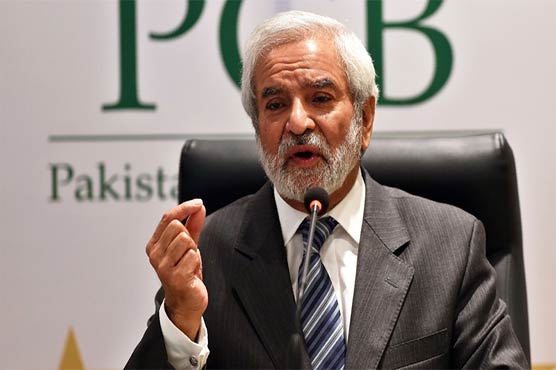PSL franchises incurred big losses in first two seasons

The letter that the PCB erroneously sent to all franchises revealing the financial details
ISLAMABAD (Web Desk) - PSL franchises incurred losses ranging from PKR 200 million to 700 million (USD 1.4 million to USD 5 million approx) each in the first two seasons of the league - losses that have led the teams to seek a financial restructuring of the league as well as tax exemptions from the Pakistan government.
A letter that was sent by the PCB to the finance minister of Punjab, which includes consolidated financial details of the five franchises from the 2016 and 2017 seasons, disclosed these facts and figures.
This is the letter that the PCB had erroneously sent to all franchises, inadvertently revealing the financial details of each franchise to the others, a slip-up that the PCB chairman Ehsan Mani had to apologise for.
Over the last couple of seasons, franchises have raised concerns over the amount of tax they have had to pay on top of their franchise fees and other operational expenses, all contributing to the losses they are incurring. According to the letter, Lahore Qalandars - the least successful franchise on the field, having finished last each season - have incurred the largest losses: PKR 312,744,021 in 2016 and PKR 420,914,836 in 2017.
Quetta Gladiators, the lowest-priced franchise when the league was launched, have incurred the smallest losses: PKR 46,530,560 in the opening season and PKR 63,518,476 in 2017. Quetta are among the more successful franchises, having finished runners-up twice in three seasons.
Karachi Kings, the most expensive franchise when the league was launched, incurred losses of PRK 117,028,811 in 2016 and PKR 60,846,776 in 2017. Islamabad United, the current champions, twice winners and the league s most successful franchise, lost PKR 184,148,300 and PKR 241,981,640 in 2016 and 2017 respectively. The 2017 champions Peshawar Zalmi made a loss of PKR 237,233,858 in the opening season but reduced that ten-fold to PKR 20,152,767 in their winning season.
The figures may seem eye-opening but the fact that the league is mostly played in the UAE, where logistics and operational costs are much higher and sponsorship cannot be leveraged as it might have had it been played in Pakistan, are a big factor. Additionally, the first set of broadcast and commercial rights deals (signed for the first three seasons) were relatively lower - the new broadcast deal, for example, is 358% higher than the first one - and that has affected the revenue each franchise receives from the central pool.
One of the main concerns of the franchises is that the franchise fee they pay to the PCB every year is in US dollars - the value of the Pakistani rupee against the dollar has plummeted, however, over the last six months. The first owners of the Multan franchise, who pulled out after one season, cited the dollar fluctuation as one of the main reasons for their leaving. The Multan Sultans are believed to have made a loss of approximately PKR 400 million in the one season they played in 2018.
The other big concern is the taxes paid on the franchise fee. According to the figures in the letter, franchise fees made up anywhere from 30% to 91% of a franchise s total costs in 2016 and 2017.
"The PCB is currently invoicing franchises by adding up Sales Tax [16%] amount which is recovered by PCB from the franchises...," explains the letter, sent in early December by the PCB s chief operating officer Subhan Ahmed.
"In addition to the above, the Federal Government s withholding tax currently chargeable at 10% of the franchise fee is also levied by the PCB and deposited with the Federal Board of Revenue. The amount of franchisee fee plus taxes adds to the financial hardships of the franchisee who in addition to these, also incur costs of players match fees, logistics etc in the UAE and Pakistan. Thus it adds to their financial burden since they are incurring heavy losses.
"PSL is still in its nascent years and unless measures/steps are taken to protect the brand there is a risk that the franchisees will start pulling out of the PSL. We have already have one such instance when Multan Sultans team s contract had to be terminated on account of failure to meet their financial obligations."
The PCB makes the case that once the league moves back to Pakistan properly - they are planning to play eight games in Pakistan this season - then not only will the franchises be able to move towards breaking even (because of lower costs), but it will also generate "higher economic activity in the country".
Until then, the PCB has asked the Punjab government to provide tax relief to the franchises, sponsors and rights holders for a period of five years.
The Multan franchise has since found a new owner, a consortium led by Ali Tareen agreeing to pay a franchise fee of USD 6.35 million - 144.5% more expensive than the Karachi franchise - when the PCB s base price was set at USD 5.21 million. That indicates, if nothing else, that investors still see value in the brand.

